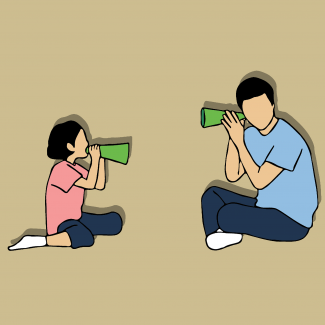THE IMPORTANCE OF TALKING GOOD
Think of it this way . . .
Language is an effective medium of communicating, but only when the speaker or writer conveys a message that gets across what he means. As I attempt to squash a nagging, down and blue, melancholy mood and go ahead and compile this article, there is ever before me the challenge of putting thoughts into words – and of the ability to articulate ideas and experience into usable information for others. Most of the time it’s not necessarily what you say as how you may say it. For example, this from ‘Nother Goose:
As Tommy Snooks and Bessie Brooks
Were walking out on Sunday,
Said Tommy Snooks to Bessie Brooks,
“Tomorrow will be Monday.”
That remark is a good example of an ultimate low in social conversation. I think I’d just as soon sit and watch old paint peel off the side of a dilapidated barn and not talk at all (talk about “much ado about nothing!”). That’s as silly as saying “a little bird told me.” To me, that would indicate that what was told should be considered a little suspect – like, “foul whisperings are abroad” (from Macbeth). Here’s another example:
FOUR ALL WHO REED AND RIGHT
We’ll begin with a box, and the plural is boxes; but the plural of ox became oxen not oxes.
One fowl is a goose, but two are called geese, yet the plural of moose should never be meese.
You may find a lone mouse or a nest full of mice; yet the plural of house is houses, not hice.
If the plural of man is always called men, why shouldn’t the plural of pan be called pen?
If I spoke of my foot and show you my feet, and I give you a boot, would a pair be called beet?
If one is a tooth and a whole set are teeth, why shouldn’t the plural of booth be called beeth?
Then one may be that, and three would be those, yet hat in the plural would never be hose,
and the plural of cat is cats, not cose.
We speak of a brother and of brethren, but though we say mother, we never say methren.
Then the masculine pronouns are he, his and him, but imagine the feminine, she, shis and shim!
“I know you believe you understand what you think I said, but I’m not so sure you realize that what you heard is not what I meant.”
-John D.




